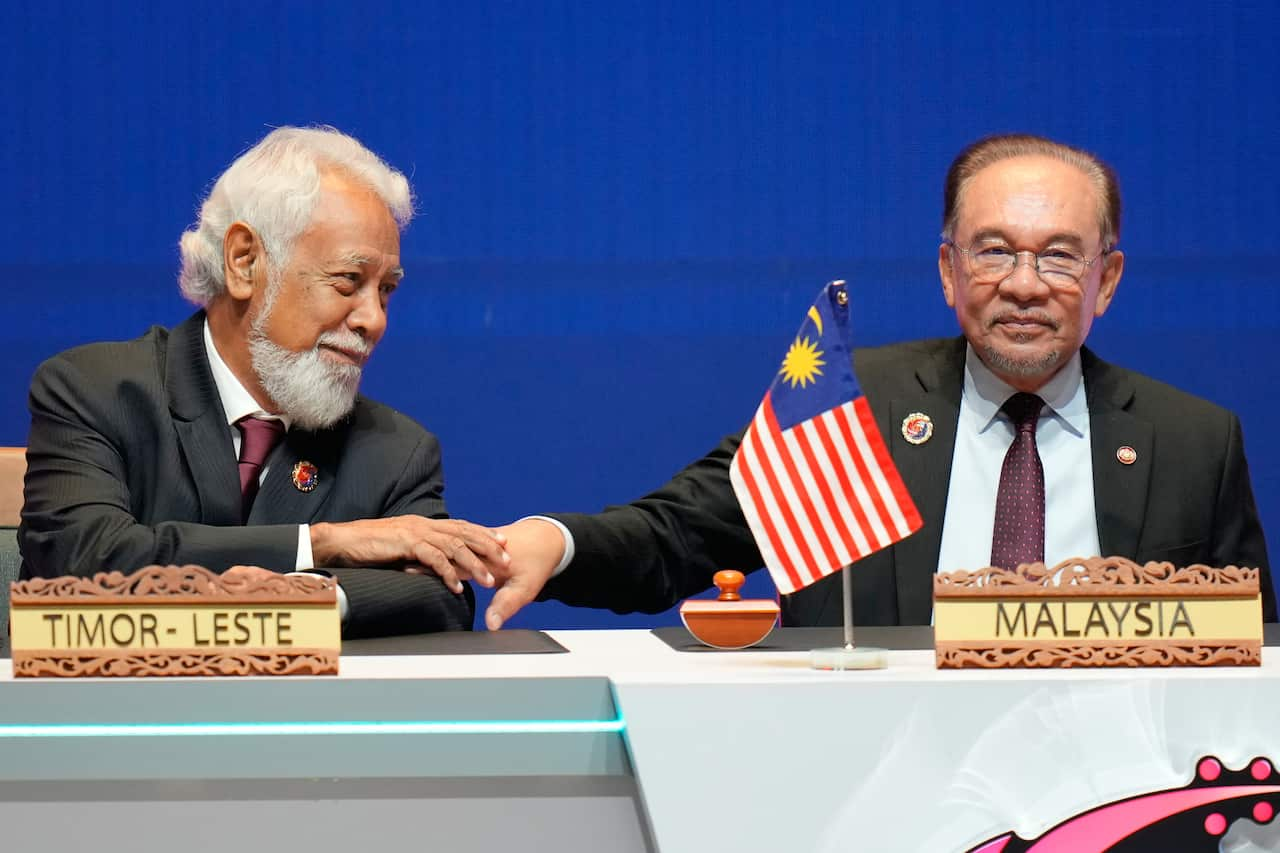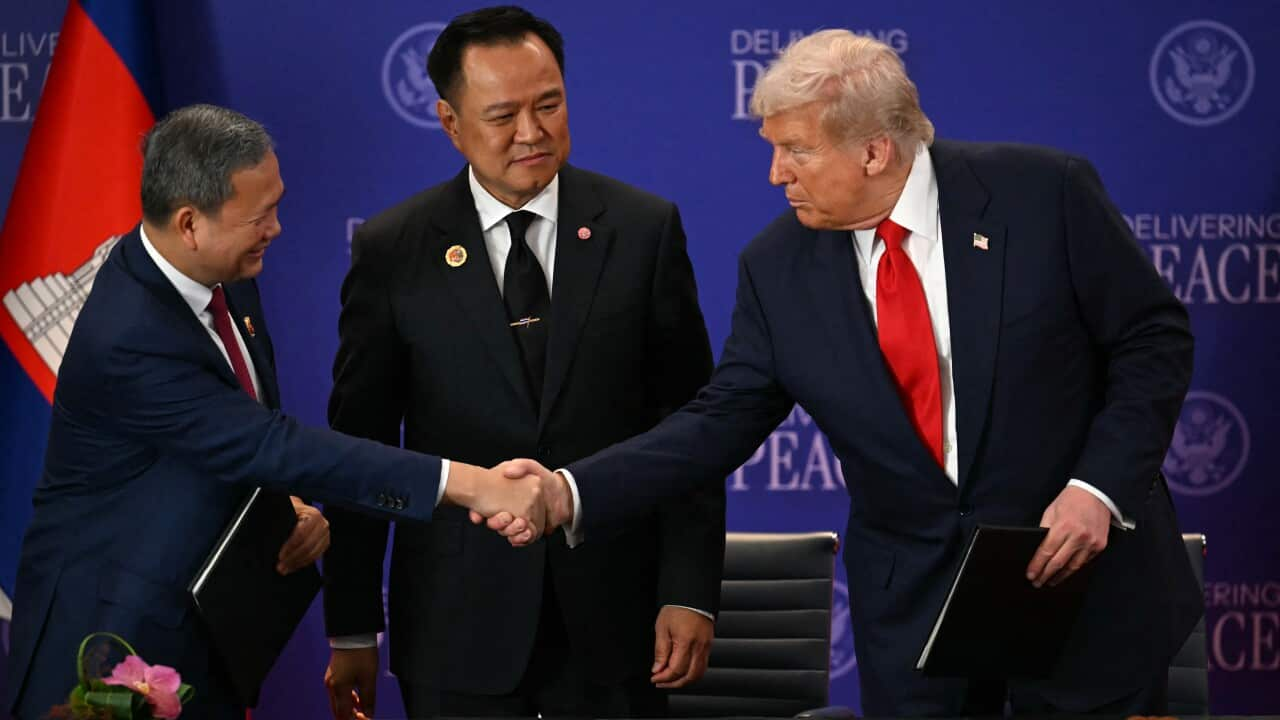US President Donald Trump co-signed a ceasefire agreement between Thailand and Cambodia in Malaysia, the first stop on his Asia tour which will culminate in talks with Chinese leader Xi Jinping.
The deal was signed by Thai Prime Minister Anutin Charnvirakul and Cambodian Prime Minister Hun Manet together with Trump and Malaysian Prime Minister Anwar Ibrahim, following a bloody border dispute this year.
Both sides blame each other for starting the five-day exchange of rockets and heavy artillery, which killed at least 48 people and temporarily displaced an estimated 300,000 in their worst fighting in recent history.
The two neighbours agreed to an initial ceasefire in late July — brokered in part by Trump.
Guns have been largely silent along the border, though both sides have frequently accused each other of ceasefire violations that the enhanced agreement seeks to prevent.
Speaking at the signing, Trump called it a "monumental step" and congratulated both Anutin and Hun for the move.
A final comprehensive peace pact between the two Southeast Asian neighbours still remain outstanding, analysts have said.
What's in the expanded ceasefire deal?
The two countries, in a joint declaration, committed to establishing an ASEAN observer team, military de-escalation and removal of heavy weapons from their border area, with Thailand agreeing to release 18 Cambodian prisoners of war if the measures were implemented.
They also agreed to coordinate on removing landmines, which were the trigger for the fighting after a Thai soldier was maimed during a border patrol. Thailand has accused Cambodia, one of the world's most landmine-scarred countries, of laying new ordnance, which it denies.
"This declaration reflects our will to resolve differences peacefully in full respect of sovereignty and territorial integrity," Charnvirakul said.
Manet said it showed conflicts must be settled peacefully, "no matter how difficult or complex our dispute may be".
The agreement will be a feather in the cap for Trump, whose administration has this year been involved in mediation efforts in Gaza, between Armenia and Azerbaijan, and a brief conflict between India and Pakistan, while pushing to end Russia's war in Ukraine, which he has admitted has proven harder than he anticipated.
Timor-Leste formally admitted to ASEAN
Meanwhile, Asia's youngest nation East Timor became the 11th member of the Southeast Asian bloc ASEAN at its summit in Malaysia.
The integration of the region's youngest and poorest nation — with just 1.4 million people — is being hailed as a symbolic step for regional inclusivity.
After the flag of East Timor, also known as Timor-Leste, was added to the other 10 on the stage at a formal ceremony in Kuala Lumpur on Sunday, Prime Minister Xanana Gusmao told the other leaders that "today, history is made".
"For the people of Timor-Leste this is not only a dream realised but a powerful affirmation of our journey," he said.
East Timor was a Portuguese colony for over four centuries before Indonesia's 1975 invasion.

ASEAN membership gives East Timor access to the bloc's free trade deals, investment opportunities and a broader regional market — vital for diversifying an economy long reliant on oil and gas.
It struggles with high levels of unemployment and malnutrition, and 42 per cent of the population lives below the national poverty line.
Nearly two-thirds of the country's citizens are under 30 years old, making youth job creation a high priority.
Its major source of government revenues comes from the oil and gas industry but with resources quickly becoming depleted it is looking to diversify.
"For us this new beginning brings immense opportunity in trade, investment, education and the digital economy - we are ready to learn, innovate and uphold good government," Gusmao said.
"This is not the end of a journey, this is a beginning of an inspiring new chapter. "
For the latest from SBS News, download our app and subscribe to our newsletter.

